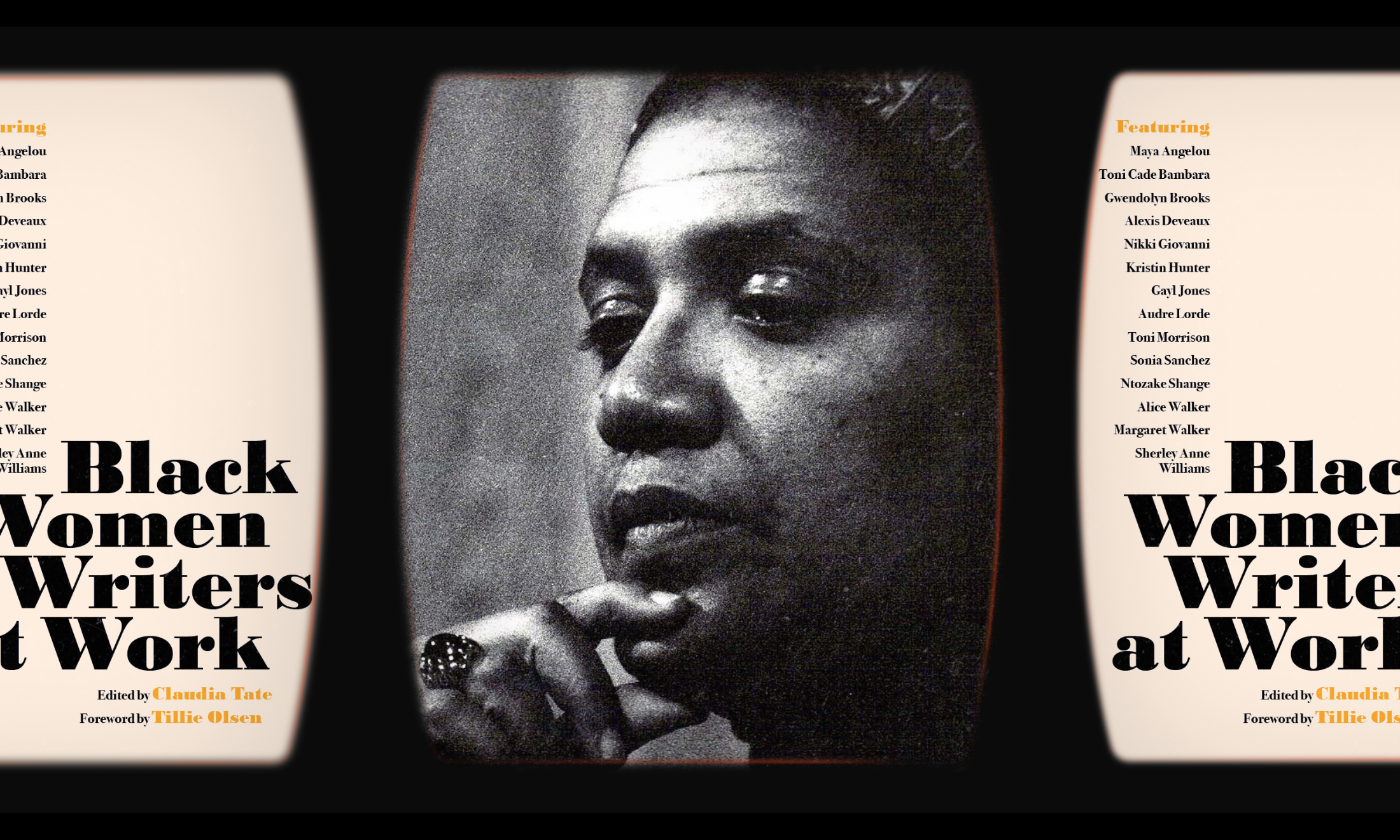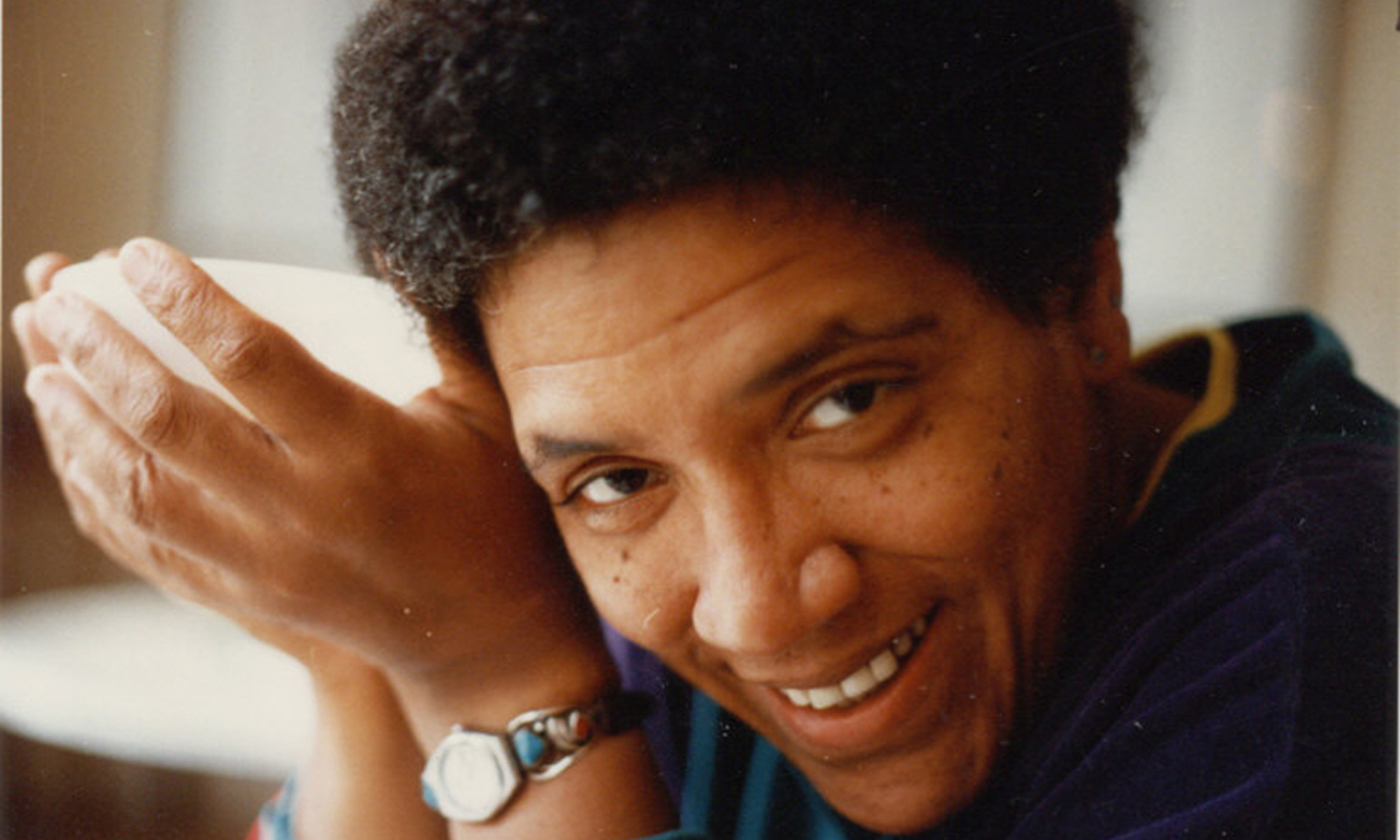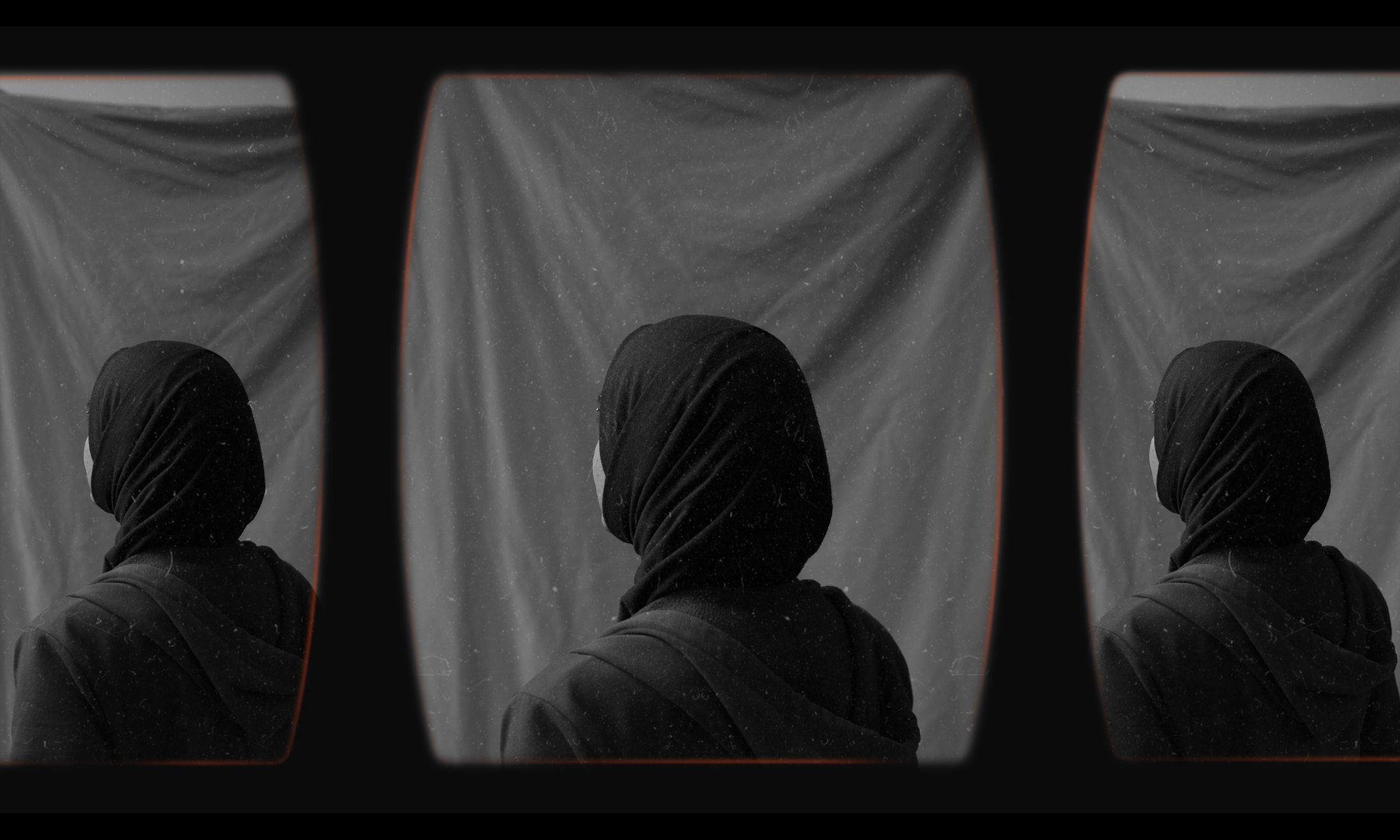Desirability and survival: for some Black women, slimness equals safety
In an extract from her new book ‘It’s Always Been Ours’, dietitian Jessica Wilson MS, RD., recounts an experience with a struggling patient.
Jessica Wilson, MS., RD.
11 Mar 2023

Kim Newmoney
Content warning: disordered eating, racism, fatphobia
My waiting room and office space communicate everything I want patients to know: that my work centres those too often overlooked by my fellow dietitians – Black women, femmes, and queer folks. The bookshelves display covers that address body politics and queerness; the walls are hung with artist Alillia’s life-size paintings of Black bodies, unapologetic in their abundance. My favourite, ‘Breathe Beauty’, greets me in the waiting room every time I walk out of my office. The figure in the painting has dark skin with gold highlights around nose and eyes. The figure is naked from the shoulders up, face framed by blue-black, kinky hair falling around the shoulders. Dark, full lips form part of the violet butterfly that is painted around the mouth. The figure’s strong gaze strikes me as empathetic and calm, a welcome presence in an office that holds many emotions.
Mia is in the waiting room, perched on the edge of my couch wearing a pressed navy pencil skirt and a pink silk blouse with pearl buttons. I glance up at ‘Breathe Beauty’ as I exit my office and greet her. Knee bouncing, Mia’s black spiral-bound notebook is moving up and down on her lap. She has relaxed hair that reaches past her shoulders. It is nine a.m. on a Saturday and, though many of my clients would arrive in casual attire, Mia is dressed to be taken seriously. I am curious about whether she has not been heard or respected by previous clinicians.
“One hour is very little time to hear a Black woman’s body story”
As we walk into my office, I turn on the noisemaker for privacy and invite her to have a seat on my black leather loveseat. It’s over-cast in Oakland that morning; she looks out the window as she gets settled. We exchange pleasantries before I let her know what she canbexpect from me: honesty, curiosity, and a political context for her experiences. I find that sharing my style up front reduces anxiety for my clients and allows me to connect with them more quickly. One hour is very little time to hear a Black woman’s body story.
Within minutes Mia’s story unfolds. She’s here because she’s exhausted, so exhausted that even a good night’s sleep does not restore her. She’s recently changed medical insurance and met with a new doctor who told her that her lab results show signs of malnutrition, which is how she ended up in my office. Also, at her last salon visit she and her hairdresser realised that her hair is thinning and also has stopped growing. The hairdresser recommended some supplements for hair growth, and Mia is hoping to get my feedback on these as well as supplements that can fix her deficiencies and increase her energy.
Mia is twenty-four and has just started graduate school in a town close to home. She is in a predominately white aerospace engineering program, the only Black woman in her class. Six months prior to starting her program she embarked on a “Wellness journey” after her previous doctor told her that she was “obese.” That doctor told Mia she needed to lose weight to reduce her risk of developing chronic diseases, ones that she is more likely to get anyhow because she is Black.
At twenty-four, Mia needed to be concerned about the ways she is likely to die as a Black woman. Her body, from that appointment on, was a risk factor. Mia hadn’t thought of her body in such a pathologizing way prior to that appointment. Hearing how the doctor problematized her body was disturbing to Mia; she lost the weight he recommended and more. She scoured the internet for advice and looked up ideas for “healthy meal prep.” She stopped eating meals with her family and instead brings over her own containers of food to eat while they share food her mom has prepared. She started going to the gym every day and is now worried to take a day off.
“Black women are tasked with existing in a society that views us disposable”
The response to her weight loss has been overwhelmingly positive. She has noticed a shift in her social capital and desirability. Her peers and professors have started looking at and talking to her differently. Her classmates know how much she exercises and praise her for taking the time to do so when the academic workload is so overwhelming they don’t even have time to sleep. Mia appreciates the feedback and interprets this to mean that she is disciplined and Healthy in their eyes. But Mia doesn’t engage with her peers outside of classes because she needs to exercise. She also doesn’t join them for happy hour because she doesn’t want to pay for a side salad – the only thing she eats at restaurants – because she could make the same thing at home for less money. And besides, the alcohol is just extra calories that she doesn’t need.
I ask Mia about her days, and ask more specific questions about how much she is eating and how much she is exercising. I ask her which supplements she is already taking. We discuss what messaging she got about food and bodies as she was growing up. As we continue to talk, she gets visibly impatient. She tells me that she came here for me to tell her what is missing in her diet so that she can take supplements to make up for it, that’s all. I realise that my attempts to build rapport aren’t what’s needed in this appointment and decide to be clear about my concerns.
I tell Mia that her energy levels will likely improve and her hair may grow back if she begins to eat more food and exercise less. I see the confusion on her face, the subtle frown line and slightly raised eyebrow. She tells me, “That can’t be the problem; what I’ve been doing is working, it’s getting results. There’s just a vitamin or mineral missing from my diet; maybe magnesium?”
“I understand your concerns,” I share, “but from what you’ve told me I don’t have concerns about your vitamins and minerals, I have concerns about calories, fat, and protein.”
“But I’m the healthiest I’ve even been in my life! I eat intuitively now, my body doesn’t like any of the foods that I used to eat; it prefers vegetables and fruit.”
Her body is no longer a risk factor.
“If we can make ourselves smaller both literally and figuratively, we may be able to uncouple ourselves from the savagery associated with our Blackness”
When I ask Mia if anyone has expressed concerns about her food restriction and rigidity, she assures me this isn’t what’s going on here – it’s not about weight loss or the thin ideal; it’s about her health and feeling good in her body. I ask whether people have talked subtly about her food, and she tells me that her sister has noticed what is going on and offered to support her.
But Mia doesn’t need support; she just needs me to tell her how to fix the problem so that she can get her energy back and thicken her hair. I hear this regularly. It’s not about dieting. It’s about “Health” and “Wellness.” It’s about feeling “clean.” And because this pursuit of Wellness also feels like a pursuit of purity and morality, she is happy to perform whatever rituals or sacrifices may seem necessary to contain her body.
I explain to her how energy deficits impact the body and why this would explain her experiences and lab results. She listens, opens her mouth to say something, and then pauses. She looks out the window and becomes tearful.
“I can’t be the only Black person in my class and also be fat,” she says. And there it is, the reason why Mia is here: the impacts of white supremacy on the body narratives of Black women and the safety found in conforming to what whiteness demands.
All I can do is nod.
Black women are tasked with existing in a society that views us as disposable. The politics and constructs that shape society shape our bodies. White supremacist capitalism objectifies and commodifies individuals. It creates social hierarchies and then makes money by selling us the promises of thinness, Health, and, ultimately, whiteness.
Mia and I discuss the impacts of white supremacy on the desirability of Black women. I let her know, without judgement, that I understand how conforming to what whiteness demands makes us more palatable in predominantly white settings. We discuss how straightening our hair, restraining ourselves, taking up less space – both figuratively and literally – and even lightening our skin can make it easier to get a job, a partner, and a home loan. We discuss how we have survived living in a world that doesn’t value Black women by negotiating physical and psychological stress and trauma daily.
“In Mia’s mind, becoming thin is not about being a certain dress size; it’s is about survival”
I tell Mia that I often see marginalised people engage in practices that can negatively impact their well-being in order to lessen microaggressions, organise their day-to-day actions, and strategize existence. Navigating a competitive, predominantly white graduate program is hard enough. Mia tells me she fears that if her body conforms to the stereotypes of Blackness that her classmates have, she may finish the program but won’t have the networks she’ll need to advance in her career.
In Mia’s mind, becoming thin is not about being a certain dress size; it is about survival. If others perceive her body to be a disciplined body, she knows she will be treated with more respect by classmates and professors.
I share that I know she began her Wellness journey with the best of intentions. And that I understand how the positive feedback and attention she’s getting for having lost weight make it easier to navigate everyday life.
“Our safety is contingent on how little of a threat we pose to those around us”
Mia is quiet. I am quiet, too. I want her to take her time. After a minute or two, her feelings bubble up. She wipes a tear from her cheek and tells me that, though she may agree with me in theory and understands that eating food may give her more energy, she just can’t gain weight – it’s too much of a risk. In fact, she would like to lose more weight “to be safe.”
I know. Our safety is contingent on how little of a threat we pose to those around us. If we can make ourselves smaller both literally and figuratively, we may be able to uncouple ourselves from the savagery associated with our Blackness. Our humanity is tied to how well we can conform to what whiteness demands. We might swallow parts of ourselves, rather than food, to become more palatable to others. We may hold ourselves and other Black women to higher standards than we would any other group of people. We seek respect, and get tripped up in respectability. Our survival in society directly correlates with our resilience. We push ourselves beyond capacity to get through our day-to-day tasks.
It’s Always Been Ours: Rewriting the Story of Black Women’s Bodies by Jessica Wilson is available here via Hay House UK.
The contribution of our members is crucial. Their support enables us to be proudly independent, challenge the whitewashed media landscape and most importantly, platform the work of marginalised communities. To continue this mission, we need to grow gal-dem to 6,000 members – and we can only do this with your support.
As a member you will enjoy exclusive access to our gal-dem Discord channel and Culture Club, live chats with our editors, skill shares, discounts, events, newsletters and more! Support our community and become a member today from as little as £4.99 a month.







